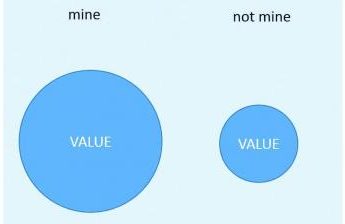In the startup world, there are more failures than successes. What is a success? It could be an Initial Public Offering. That means listing equity on a stock exchange. This is a long drawn-out process and complex. It’s expensive and only a very few businesses are truly eligible for this type of liquidity event. Selling your company (being acquired) is the most common exit. This includes both tech startups and non-tech companies. And this should be mentioned: Just keeping going is always an option. But sometimes personal circumstances of the owners don’t make this an attractive option. Statistically, most companies…
Scams We Have Seen
We’ve been in the valuation and related advisory business for a long time. My valuation firm, Alteris LLC has had a huge variety of clients, everything from venture-backed startups to major institutions to national governments. We also work with privately held businesses in the lower middle market. Often this is some of the most rewarding and gratifying work we do. It’s very rewarding to see the positive effect we can have on the lives of our clients and their families. Alteris LLC always endeavors to uphold the highest ethical standards and treat our clients in the best way possible. We…
This Way of Thinking is Common in Business Valuation
What is a very common issue that business valuators come across? It’s that most people overvalue the things they already own. In valuing companies for buy/sell or acquisition purposes, it is extremely likely that the owner (seller) will place a higher value on the business than the buyer. This is called the endowment effect by psychologists and behavioral economists. This is so common in the M&A world that intermediaries just expect this to occur. It’s an automatic. Why is this? Behavioral economists have researched and written about the many ways human behavior deviates from standard economic theory. Standard economic theory…
Business Valuations Are Good for Your Business
There are over 10 million small businesses in the United States. At any given time at least 10% of these businesses are facing a business transition issue. Most of those businesses facing a transition issue need valuations for tax reasons or for optimum financial planning. Or for an ownership change due to retirement or related issues. The number of businesses facing the transfer of ownership issues will continue to rise over the coming years as more baby boomers hit the age at which they would rather be on the golf course than in the office. Baby boomers’ children and new…
Why it can be so hard to sell a business
It’s all about supply and demand. Here are some facts. About 4.2 million companies or 70% of all businesses that employ more than one person are owned by someone who is aged 53 or older. Around 8,000 people turn 65 every day and this isn’t changing for a while. Until the baby boom cohort is done. Most business owners have delayed selling their business because of the terrible economic recession starting in 2008. They were and are waiting for better market conditions. Here are some more facts. Private Equity Groups (PEGs) own 7,700 to 8,000 companies. By definition, a PEG…
Our Attitudes Towards Debt Have Changed
Warren Buffet recently quoted his partner Charlie Munger: “There are three ways to go broke: “liquor, ladies and leverage”. For me, I know almost nothing of liquor and will not comment on the ladies. The rest of this article talks about leverage and our relationship with debt as a society. The public acceptance of the use of debt has evolved over time. I am reminded of my Great-Grandmother Marie who was an immigrant from Emden, Germany to Chicago in the 19th century. Her family lived in what is now the posh Chicago neighborhood of Lincoln Park. Back then it was…
When Should You Use Debt In Your Business?
After discussing the good and points of debt generally, here are some specific points about when to use debt financing and how to assess the risk. If you have financial skills, create a cash flow model on a spreadsheet and calculate the impact of the additional expense of making the loan payments. This will force you to look closely at your expenses and revenues. And estimate the likelihood of being able to pay off the loan. If you don’t know how to calculate this yourself, then bring in a financial advisor. Not all CPAs know how to do this accurately…






